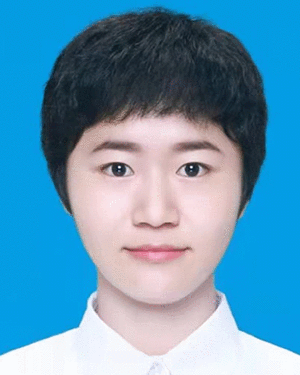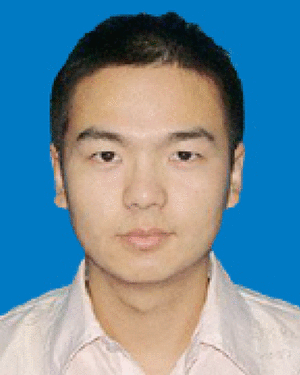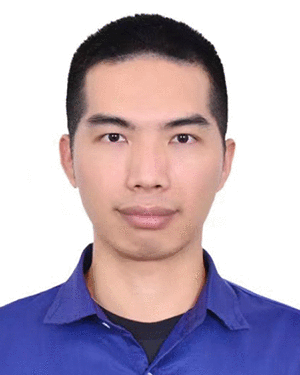Abstract:
The amount of genetic data generated by Next Generation Sequencing (NGS) technologies grows faster than Moore's law. This necessitates the development of efficient NGS da...Show MoreMetadata
Abstract:
The amount of genetic data generated by Next Generation Sequencing (NGS) technologies grows faster than Moore's law. This necessitates the development of efficient NGS data processing and analysis algorithms. A filter before the computationally-costly analysis step can significantly reduce the run time of the NGS data analysis. As GPUs are orders of magnitude more powerful than CPUs, this paper proposes a GPU-friendly pre-align filtering algorithm named SeedHit for the fast processing of NGS data. Inspired by BLAST, SeedHit counts seed hits between two sequences to determine their similarity. In SeedHit, a nucleic acid in a gene sequence is presented in binary format. By packaging data and generating a lookup table that fits into the L1 cache, SeedHit is GPU-friendly and high-throughput. Using three 16 s rRNA datasets from Greengenes as input SeedHit can reject 84%–89% dissimilar sequence pairs on average when the similarity is 0.9–0.99. The throughput of SeedHit achieved 1 T/s (Tera base per second) on 3080 Ti. Compared with the other two GPU-based filtering algorithms, GateKeeper and SneakySnake, SeedHit has the highest rejection rate and throughput. By incorporating SeedHit into our in-house clustering algorithm nGIA, the modified nGIA achieved a 1.6–2.1 times speedup compared to the original version.
Published in: IEEE/ACM Transactions on Computational Biology and Bioinformatics ( Volume: 21, Issue: 6, Nov.-Dec. 2024)
Funding Agency:

Shenzhen Institute of Advanced Technology, Chinese Academy of Sciences, Shenzhen, China
University of Chinese Academy of Sciences, Beijing, China
Zhen Ju received the BS degree in communication engineering from the Lanzhou University of Technology, Lanzhou, China, in 2014, and the MS degree in computer applications technology from the University of Chinese Academy of Sciences, Beijing, China, in 2016. He is currently working toward the PhD degree with the University of Chinese Academy of Sciences, Beijing, China. His current research interests include heterogeneous...Show More
Zhen Ju received the BS degree in communication engineering from the Lanzhou University of Technology, Lanzhou, China, in 2014, and the MS degree in computer applications technology from the University of Chinese Academy of Sciences, Beijing, China, in 2016. He is currently working toward the PhD degree with the University of Chinese Academy of Sciences, Beijing, China. His current research interests include heterogeneous...View more

Shenzhen Institute of Advanced Technology, Chinese Academy of Sciences, Shenzhen, China
University of Chinese Academy of Sciences, Beijing, China
Jingjing Zhang received the BS degree in biological science from Northeast Agricultural University, Harbin, China, in 2017, and the MS degree in bioinformatics from Shaanxi Normal University, Xi’an, China, in 2020. She is currently working toward the PhD degree with the University of Chinese Academy of Sciences, Beijing, China. Her current research interests include circular RNAs.
Jingjing Zhang received the BS degree in biological science from Northeast Agricultural University, Harbin, China, in 2017, and the MS degree in bioinformatics from Shaanxi Normal University, Xi’an, China, in 2020. She is currently working toward the PhD degree with the University of Chinese Academy of Sciences, Beijing, China. Her current research interests include circular RNAs.View more

Shenzhen Institute of Advanced Technology, Chinese Academy of Sciences, Shenzhen, China
Xuelei Li received the BS and MS degrees in solid geophysics from Jilin University China, Changchun, China, in 2010 and 2013, respectively, and the PhD degree in solid geophysics from the Institute of Geodesyand Geophysics, Chinese Academy of Sciences, Wuhan, China, in 2017. He is currently a deputy senior engineer with the Shenzhen Institute of Advanced Technology, Chinese Academy of Sciences. His research interests incl...Show More
Xuelei Li received the BS and MS degrees in solid geophysics from Jilin University China, Changchun, China, in 2010 and 2013, respectively, and the PhD degree in solid geophysics from the Institute of Geodesyand Geophysics, Chinese Academy of Sciences, Wuhan, China, in 2017. He is currently a deputy senior engineer with the Shenzhen Institute of Advanced Technology, Chinese Academy of Sciences. His research interests incl...View more

Shenzhen Institute of Advanced Technology, Chinese Academy of Sciences, Shenzhen, China
Jintao Meng received the BS and MS degrees in computer science from the Central China Normal University, Wuhan, in 2005 and 2008 respectively, and the PhD degree in computer architecture from the Institute of Computing Technology, Chinese Academy of Sciences, Beijing, in 2016. He is an research associate with the Shenzhen Institute of Advanced Technology, Chinese Academy of Sciences. He is the author of SWAP-Assembler, an...Show More
Jintao Meng received the BS and MS degrees in computer science from the Central China Normal University, Wuhan, in 2005 and 2008 respectively, and the PhD degree in computer architecture from the Institute of Computing Technology, Chinese Academy of Sciences, Beijing, in 2016. He is an research associate with the Shenzhen Institute of Advanced Technology, Chinese Academy of Sciences. He is the author of SWAP-Assembler, an...View more

Shenzhen Institute of Advanced Technology, Chinese Academy of Sciences, Shenzhen, China
Yanjie Wei received the PhD degree from Michigan Tech University, in 2007. He is a professor and the director in Center for High Performance Computing, Shenzhen Institute of Advanced Technology, Chinese Academy of Sciences. He worked as a postdoctoral research associate with Princeton University from 2008 to 2011. His research focuses on high performance computing and computational biology/bioinformatics. He has published...Show More
Yanjie Wei received the PhD degree from Michigan Tech University, in 2007. He is a professor and the director in Center for High Performance Computing, Shenzhen Institute of Advanced Technology, Chinese Academy of Sciences. He worked as a postdoctoral research associate with Princeton University from 2008 to 2011. His research focuses on high performance computing and computational biology/bioinformatics. He has published...View more

Shenzhen Institute of Advanced Technology, Chinese Academy of Sciences, Shenzhen, China
University of Chinese Academy of Sciences, Beijing, China
Zhen Ju received the BS degree in communication engineering from the Lanzhou University of Technology, Lanzhou, China, in 2014, and the MS degree in computer applications technology from the University of Chinese Academy of Sciences, Beijing, China, in 2016. He is currently working toward the PhD degree with the University of Chinese Academy of Sciences, Beijing, China. His current research interests include heterogeneous computing and high-performance computing.
Zhen Ju received the BS degree in communication engineering from the Lanzhou University of Technology, Lanzhou, China, in 2014, and the MS degree in computer applications technology from the University of Chinese Academy of Sciences, Beijing, China, in 2016. He is currently working toward the PhD degree with the University of Chinese Academy of Sciences, Beijing, China. His current research interests include heterogeneous computing and high-performance computing.View more

Shenzhen Institute of Advanced Technology, Chinese Academy of Sciences, Shenzhen, China
University of Chinese Academy of Sciences, Beijing, China
Jingjing Zhang received the BS degree in biological science from Northeast Agricultural University, Harbin, China, in 2017, and the MS degree in bioinformatics from Shaanxi Normal University, Xi’an, China, in 2020. She is currently working toward the PhD degree with the University of Chinese Academy of Sciences, Beijing, China. Her current research interests include circular RNAs.
Jingjing Zhang received the BS degree in biological science from Northeast Agricultural University, Harbin, China, in 2017, and the MS degree in bioinformatics from Shaanxi Normal University, Xi’an, China, in 2020. She is currently working toward the PhD degree with the University of Chinese Academy of Sciences, Beijing, China. Her current research interests include circular RNAs.View more

Shenzhen Institute of Advanced Technology, Chinese Academy of Sciences, Shenzhen, China
Xuelei Li received the BS and MS degrees in solid geophysics from Jilin University China, Changchun, China, in 2010 and 2013, respectively, and the PhD degree in solid geophysics from the Institute of Geodesyand Geophysics, Chinese Academy of Sciences, Wuhan, China, in 2017. He is currently a deputy senior engineer with the Shenzhen Institute of Advanced Technology, Chinese Academy of Sciences. His research interests include seismic wave propagation and inversion, and high performance computing.
Xuelei Li received the BS and MS degrees in solid geophysics from Jilin University China, Changchun, China, in 2010 and 2013, respectively, and the PhD degree in solid geophysics from the Institute of Geodesyand Geophysics, Chinese Academy of Sciences, Wuhan, China, in 2017. He is currently a deputy senior engineer with the Shenzhen Institute of Advanced Technology, Chinese Academy of Sciences. His research interests include seismic wave propagation and inversion, and high performance computing.View more

Shenzhen Institute of Advanced Technology, Chinese Academy of Sciences, Shenzhen, China
Jintao Meng received the BS and MS degrees in computer science from the Central China Normal University, Wuhan, in 2005 and 2008 respectively, and the PhD degree in computer architecture from the Institute of Computing Technology, Chinese Academy of Sciences, Beijing, in 2016. He is an research associate with the Shenzhen Institute of Advanced Technology, Chinese Academy of Sciences. He is the author of SWAP-Assembler, and published 20 articles, and 18 inventions. His research interests include high performance computing, bioinformatics, and graph computing.
Jintao Meng received the BS and MS degrees in computer science from the Central China Normal University, Wuhan, in 2005 and 2008 respectively, and the PhD degree in computer architecture from the Institute of Computing Technology, Chinese Academy of Sciences, Beijing, in 2016. He is an research associate with the Shenzhen Institute of Advanced Technology, Chinese Academy of Sciences. He is the author of SWAP-Assembler, and published 20 articles, and 18 inventions. His research interests include high performance computing, bioinformatics, and graph computing.View more

Shenzhen Institute of Advanced Technology, Chinese Academy of Sciences, Shenzhen, China
Yanjie Wei received the PhD degree from Michigan Tech University, in 2007. He is a professor and the director in Center for High Performance Computing, Shenzhen Institute of Advanced Technology, Chinese Academy of Sciences. He worked as a postdoctoral research associate with Princeton University from 2008 to 2011. His research focuses on high performance computing and computational biology/bioinformatics. He has published more than 130 peer reviewed journal/conference papers.
Yanjie Wei received the PhD degree from Michigan Tech University, in 2007. He is a professor and the director in Center for High Performance Computing, Shenzhen Institute of Advanced Technology, Chinese Academy of Sciences. He worked as a postdoctoral research associate with Princeton University from 2008 to 2011. His research focuses on high performance computing and computational biology/bioinformatics. He has published more than 130 peer reviewed journal/conference papers.View more


